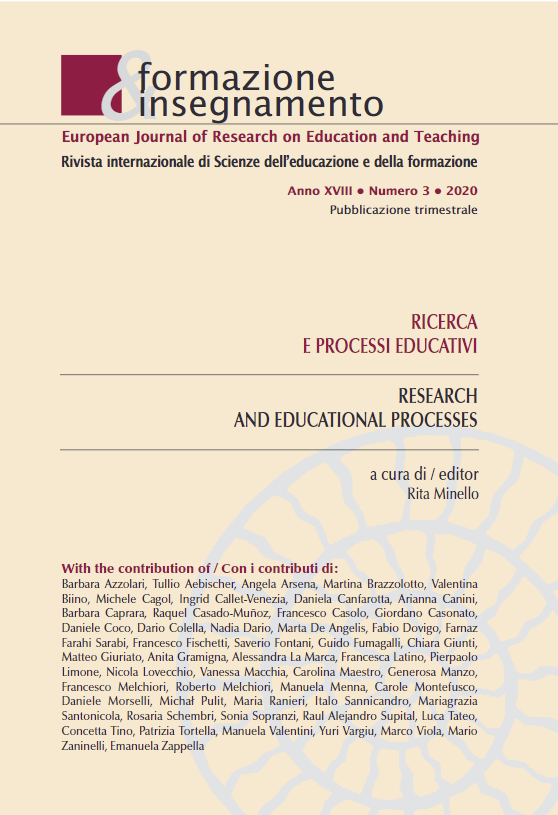Self-perceived employability in Higher Education: an exploratory study
DOI:
https://doi.org/10.7346/-fei-XVIII-03-20_31Abstract
The complexity and the dynamism of socio-economic contexts, the consequent transformations that have affected the world of work and professions have generated the attention of scholars and organizations not so much on people’s employment but on their employability. The debate on the issue of employability is still open and the perspectives developed are different. However, what seems to relate the different perspectives that can be found in the literature is the idea according to which employability concerns the ability of people to find work and above all to keep it. It is a complex concept, where the individual dimension is intertwined with the contextual one, generating a mutual influence. The purpose of this exploratory study is to focus on the subjective dimension of employability. It presents a brief survey, conducted at the University of Padova, on the self-perceived employability (SPE) of 38 students. Data were collected using the Rotwhell et al. Scale. (2008). Findings show that participants’ SPE seems to be strongly determined by individual factors (self-beliefs, ambition). Even if external factors are perceived with less influence, the university’s reputation plays a significant role. These findings are in line with the idea that the higher the level of self-efficacy, the lower the perceived threat of external uncertainty. The implications for Higher Education systems refer to the need to support the development of positive self-beliefs of learners and to guarantee a good reputation of the university system, because it significantly affects both students’ SPE and the willingness of organizations to meet the needs and the expectations of young job seekers.
Downloads
Published
How to Cite
Issue
Section
License
Copyright (c) 2020 Pensa MultiMedia

This work is licensed under a Creative Commons Attribution 4.0 International License.
Formazione & insegnamento is distributed under Attribution 4.0 International (CC BY 4.0).
For further details, please refer to our Repository & Archiving Policy, as well as our Copyright & Licensing Terms.





